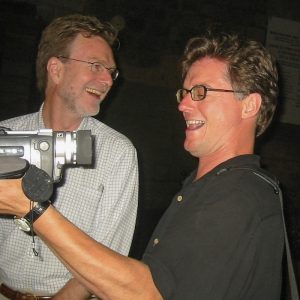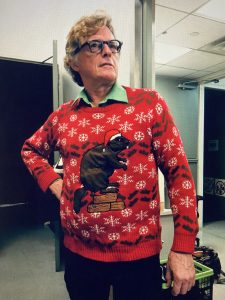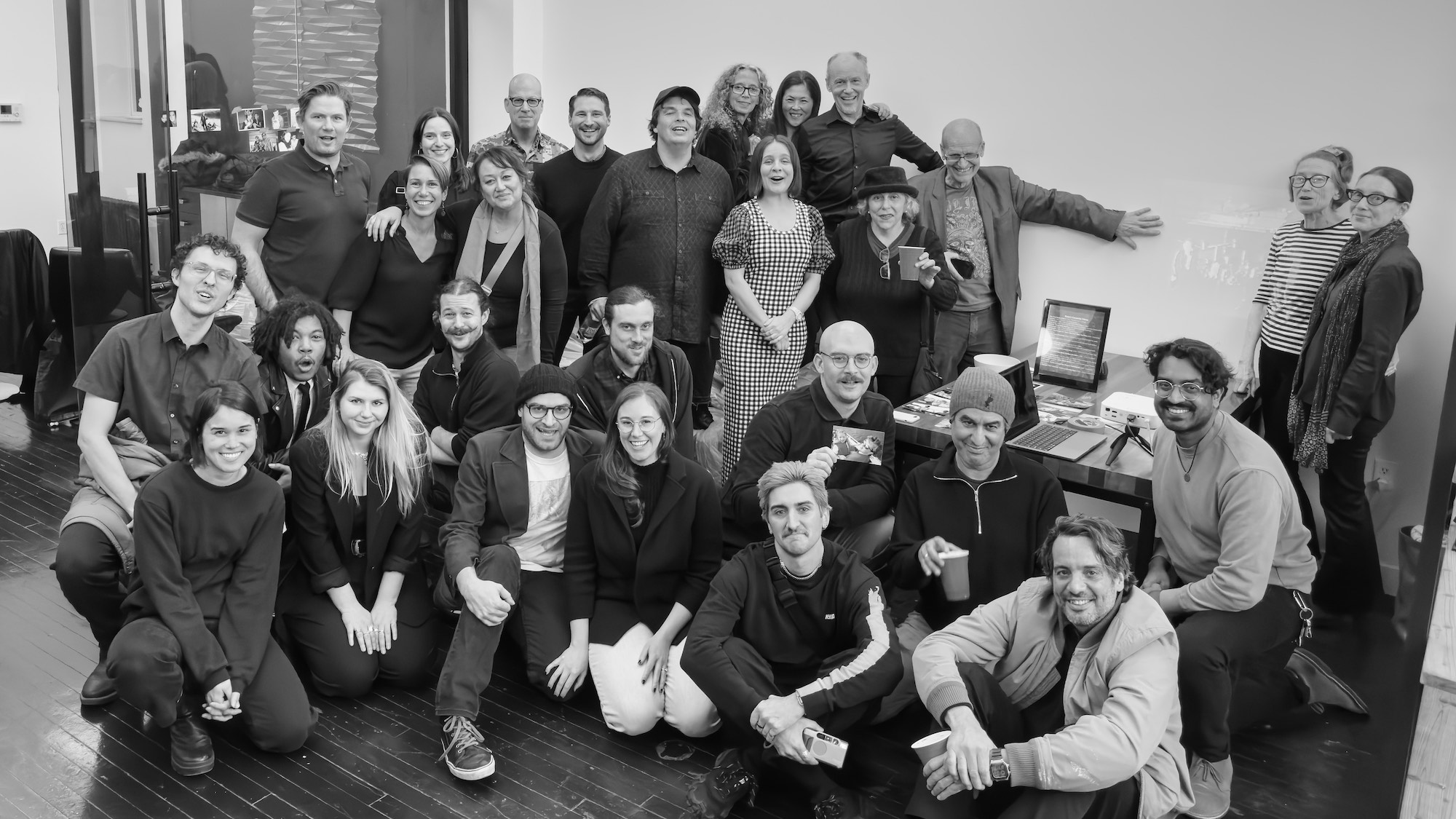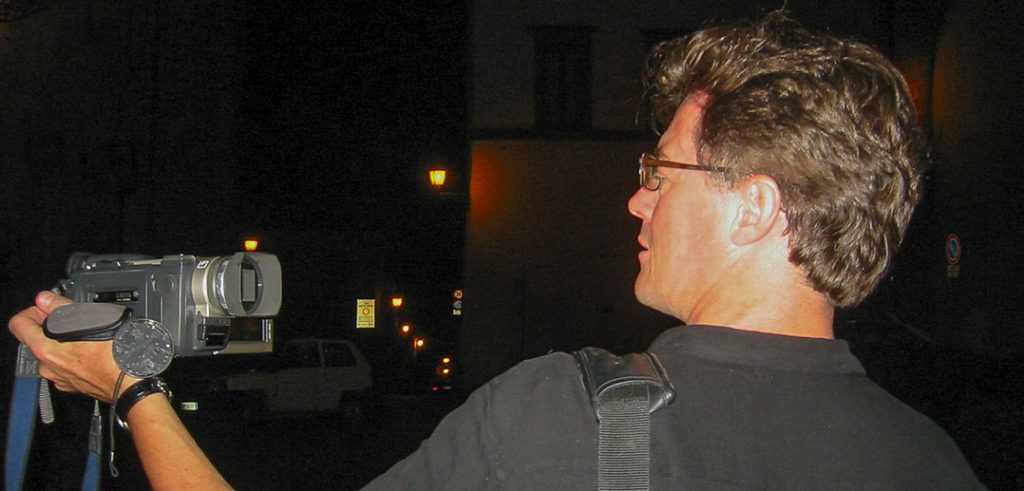“[Ross’s] devil-may-care demeanor, hip Williamsburg filmmaker act could seem like armor. Underneath … was this mushy, soft sweetheart,” said Stephan Apicella-Hitchcock, head of Fordham’s visual arts program at the Lincoln Center campus. “He is the last person who would want to be put on a pedestal. But these characters who come into your life … they become your family, and it’s quite impossible to imagine a world where he’s not padding around [Fordham] in his Chuck Taylors.”
‘The Muse Was Life; the Medium Was Film’

McLaren taught film and media production to Fordham students as an artist in residence. His work, which has been described as “abstract,” “playful,” and “ironic,” has been featured in Fordham’s annual faculty show at the Ildiko Butler Gallery. McLaren often left interpretation of his art up to his viewers. “The kind of artwork I like [is]not nailed down by the artist’s definition,” he once said.
The art that he truly loved, said his colleague Joe Lawton, was experimental non-narrative independent cinematic film.
“He had great knowledge of Walt Disney cartoons, Hollywood films, et cetera, but his real passion was the descriptive and inherent equalities in the idea of film itself,” said Lawton, associate clinical professor of photography. “He was also curious about … life itself. The muse was life; the medium was film.”
Unconventionally Living Cura Personalis

As a faculty member, McLaren wasn’t keen on volunteering for administrative tasks, said Apicella-Hitchcock, but he never hesitated to help out his students.
“I would find him assisting a student one-on-one on how to load Super 8 film into a projector, way beyond his afternoon class. In an odd, quirky way, in his anti-establishment personality way, he embodied cura personalis,” Apicella-Hitchcock said.
McLaren was an “unconventional” professor who encouraged his students to challenge existing norms and think outside the box, said former student Luke Momo, FCLC ’19. He also helped his students improve their craft by pinpointing the deeper meaning behind their self-produced films, said Momo, who noted that’s just what McLaren did when he attended the premiere of Momo’s first feature film, Capsules, at a Manhattan film festival last year.
McLaren gave his students gifts beyond filmmaking, too. “When I was in undergrad, I wasn’t [able to laugh at myself]. I had a lot of pride,” Momo said. “Being more honest and vulnerable…some of those emotions are things that Professor Ross gave me.”
Other former students said McLaren’s vision of the world made them think.
“Ross said once, ‘How strange it is that we sit in dark rooms and watch shadows on the wall to find meaning within ourselves,’” a former student commented on a tribute post. “That always stuck with me.”
A ‘Goofy’ Friend with a Parrot and Two Turtles

McLaren was born on December 4, 1953, in Ontario, Canada. He earned his M.F.A. from Ontario College of Art and taught at many institutions, including Cooper Union and Pratt Institute. His work has been screened at institutions worldwide, including MoMA in New York City and the British Film Institute Southbank in London, and found a permanent home in many art institutions. He received multiple honors, including the Millennium Achievement Award for his contributions to the arts and education. In addition, he founded Funnel Film Theatre in Toronto, an underground film collective active in the 70s and 80s that one writer recently described as “the most important locale for experimental film in Canada.”
He lived in his loft apartment in Williamsburg, Brooklyn, where he enjoyed growing plants on the rooftop; spending time with his beloved parrot, Fwankie; and sunbathing with his two turtles, Flotsam and Jetsam, who had the privilege of their own kiddie pool, said Apicella-Hitchcock. He was also a big hockey fan.
From a distance, you might have assumed he was a “goofy wisecracker, a little cynical and sarcastic,” said Apicella-Hitchcock, but at his core, McLaren was a “thoughtful, warm, and loyal friend.”
McLaren is survived by his brother, Gary McLaren, and his sister, Catherine McLaren. A memorial in McLaren’s honor will be held on Feb. 16, 2024, at 6 p.m. at the Lincoln Center campus’s Lipani Gallery, where several of his films will be screened. Contact [email protected] for more information.



